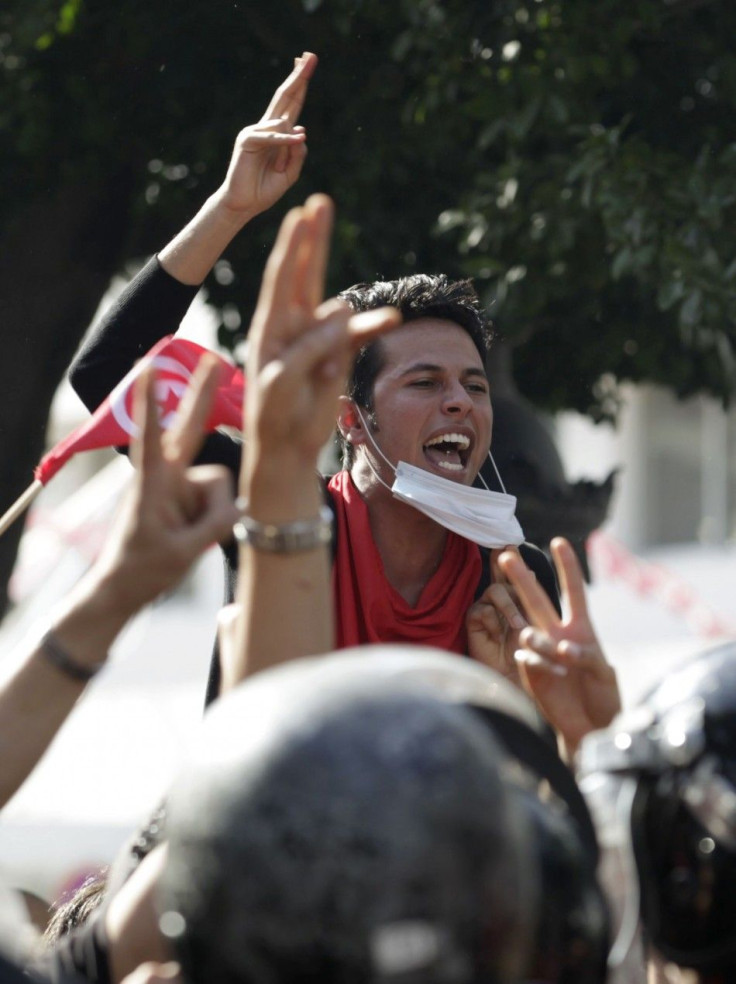Tunisia Lifts Protest Ban As Officials Struggle To Build Stable Government After Jasmine Revolution
Analysis

On Thursday, Tunisian government officials announced that a ban on protests on the main avenue of Tunis would be lifted.
The decision was made by Tunisian Minister of the Interior Ali Larayedh on Thursday during a meeting of the country's Ministerial Council. Now, people are once again free to protest on Habib Bourguiba Avenue as long as they follow certain protocols, which include requesting permission beforehand and conducting orderly demonstrations.
The decision follows a controversial crackdown on protesters last Monday. Over 2,000 people had gathered on Habib Bourguiba to mark a holiday known as Martyr's Day, despite last month's ban against such rallies. They were met by police as they neared the interior ministry building.
Law enforcement officials admit to using batons and tear gas to push back the crowd, but many rally participants allege that more brutal tactics were employed.
AFP reports that at least 15 civilians and eight officers were injured during the clash.
Some journalists and political opponents of Ennahda, the government's ruling party, said that civilians armed with grenades and bludgeons had entered the fray to fight alongside police and injure civilians. Ennahda officials denied links to any of these plainclothes fighters.
During a Constituent Assembly meeting on Thursday, Larayedh blamed the media for add[ing] fuel to the flames, motivating a group of Tunisian journalists to storm out of the meeting.
The Monday clash between protesters and police, and subsequent conflicts between government supporters and opponents, mark a tense moment in Tunisia's ongoing quest for a stable, functioning democracy.
It was here in Tunisia where the Arab Spring began; a fruit vendor named Mohamed Bouazizi died after setting himself aflame in the poor village of Sidi Bouzid, and protesters quickly rallied in his honor all over the country in what became known as the Jasmine Revolution. The secular, authoritarian government of president Zine el-Abidine Ben Ali was overthrown in 28 days.
Since then, the new government has treaded on shaky ground in trying to put together national policies that alienate neither Islamists nor secularists. Ennahda, a moderate Islamist party that was oppressed under Ben Ali, won a plurality of parliamentary seats in free elections after the overthrow. This has been a cause for concern to secularists, but some of their fears were allayed when Ennahda party officials asserted in March that the Tunisian constitution would not be based on Sharia law.
While secular liberals breathed a half-sigh of relief, the decision did provoke a backlash from a small yet vocal group of hardline Islamist Salafis, many of whom protested the decision on the streets of Tunis.
Difficulties notwithstanding, Tunisia has some unique advantages as it cobbles together a new national identity -- especially compared to other countries that have seen Arab Spring revolutions. Despite oppression and corruption under Ben Ali, citizens in Tunisia are relatively well-educated and socially liberal. The have a small and cohesive population, a healthy middle class and a good reputation for gender equality.
In the days ahead, the young government of Tunisia will continue to calibrate itself. It walks a fine line: An accommodation of popular demands must be balanced by commitments to public security, minority interests, and economic growth. The government's decision to reverse its ban on protests on Habib Bourguiba Avenue reflects some willingness to bend to the will of the populace, but subsequent allegations and denials of police brutality show that the situation in Tunis is still far from stable.
© Copyright IBTimes 2024. All rights reserved.






















